Where Stones Can Form in Your Body

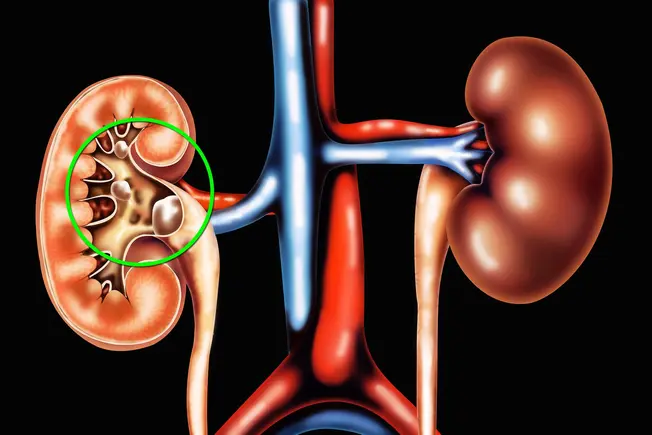
Kidneys
These hard nuggets grow when minerals, usually calcium, build up in your urinary tract. They can really hurt, especially in your back near your hips and ribs, if they get big enough to block all or some of your pee. You might see blood or even a piece of a stone in your urine. Smaller ones sometimes exit on their own in your pee. But you might need surgery to get rid of larger ones.
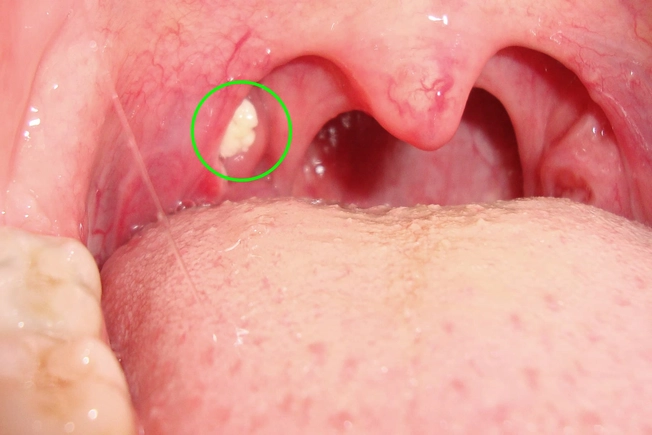
Throat
Your tonsils are two lumps of tissue at the back of your throat that help filter out germs. Food, dead skin, or other debris can get caught there and harden into stones, called “tonsilloliths.” You might have a sore throat, stinky breath, and swollen tonsils with white spots. You can usually brush the stones gently away with your toothbrush or a cotton swab, or gargle them away with saltwater. If that doesn’t do it, talk to your doctor.
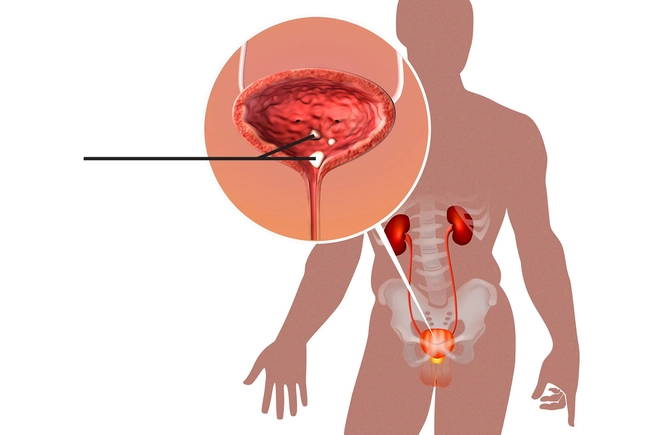
Bladder
You might get them because you don’t pee fully. Or because your urine is too high in some minerals and too low in others. These stones form on their own or after a small kidney stone slips down to the bladder and gets bigger. You might have cloudy or bloody urine, or pain in your lower belly when you pee. Your doctor could treat it with surgery or drugs, or break it up with sound waves and lasers.
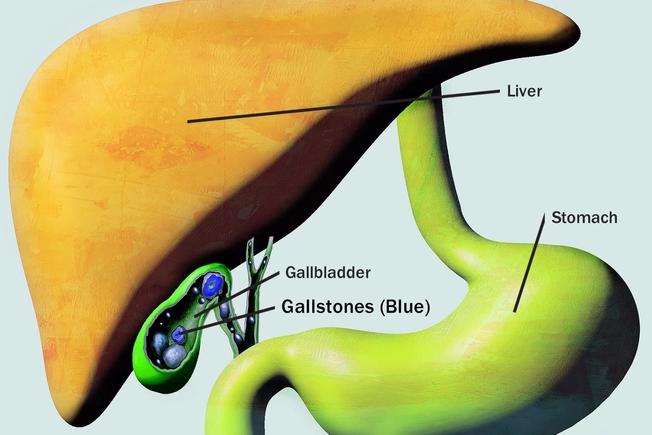
Gallbladder
This small organ in your upper right belly stores a digestive juice called bile. Cholesterol and a compound called bilirubin in the bile may lead to gallstones. They’re usually too small to cause pain or to need treatment. You might need surgery to take the gallbladder out if the stones are causing pain.
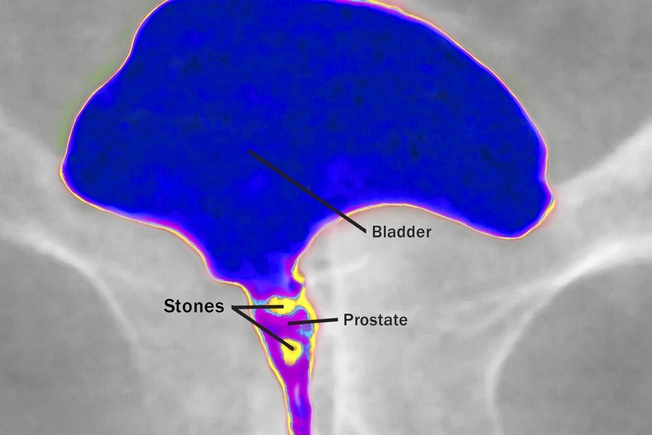
Prostate
In men, it’s a small gland near your bladder that makes fluid to protect sperm. Stones that form here are about the size of poppy seeds, and they're more common at middle age and older. Typically you won’t need treatment because they don’t usually cause symptoms. But sometimes they get infected, which can inflame your prostate, and cause urinary tract problems. This may require antibiotics or other treatment.
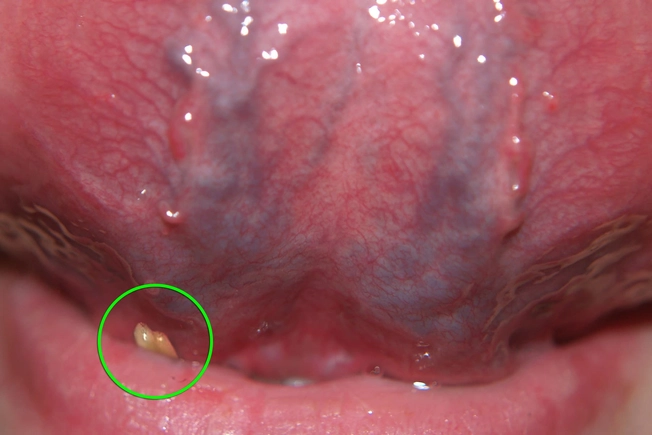
Mouth
We don’t know exactly why, but stones can appear inside your mouth. They can be painful and swell up. They may block tubes that channel saliva when you eat. You might see the whitish stone under your tongue. It’s usually not serious. You might make them go away if you drink more water, massage the stone loose, or suck on something sour. If not, your doctor can remove it.
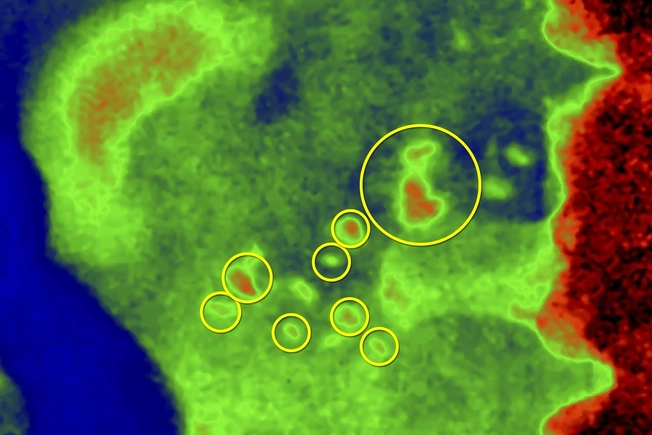
Pancreas
This organ in the middle of your belly area makes hormones that help digest food and keep your blood sugar steady. Stones can pass from the gallbladder through bile ducts to the pancreas and inflame it. You could have a fever, fast pulse, nausea, and belly pain that’s worse after meals and radiates to your back. If the stone doesn’t pass on its own, your doctor may take it out. Sometimes they might also remove your gallbladder, the source of the problem.
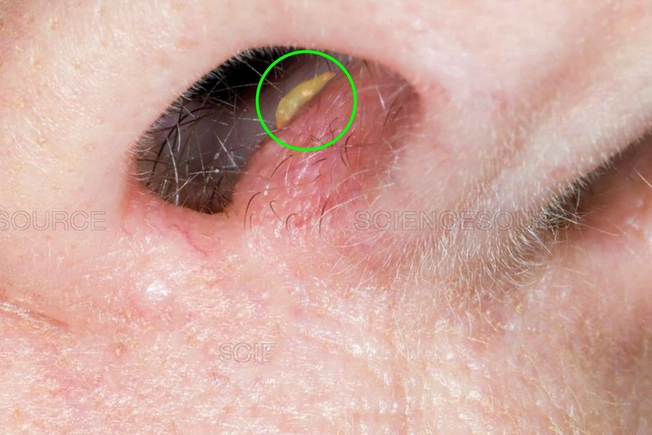
Nose
This rare stone starts when a piece of button, eraser, seed, wood, or something similar gets stuck up your nose, often in childhood. Over years, it can attract minerals like calcium, magnesium, and iron and get bigger. Eventually, you may notice pain or smelly mucus that drains from only one nostril. Your doctor finds it by looking up your nose with a special tool, and likely takes out the mass with surgery.
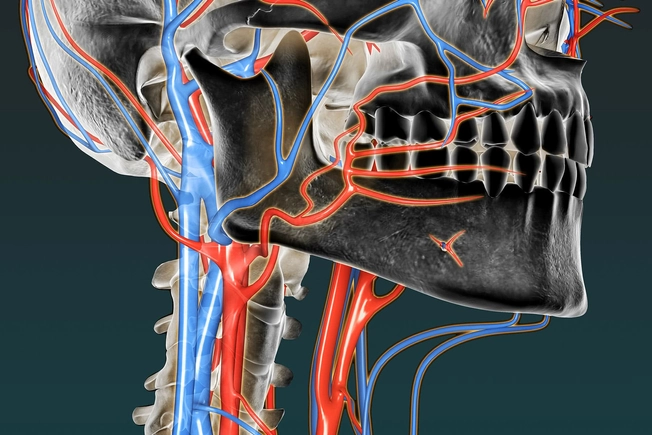
Veins
When your veins don’t grow normally, they can cause weak spots, bumps, and other problems. You might have pain and discolored skin, especially around the mouth, lips, cheek, head, and neck. Vein stones may happen because blood moves more slowly in those areas and eventually clots and hardens into a stone. Your doctor can help treat your symptoms and may look for underlying issues with your veins.
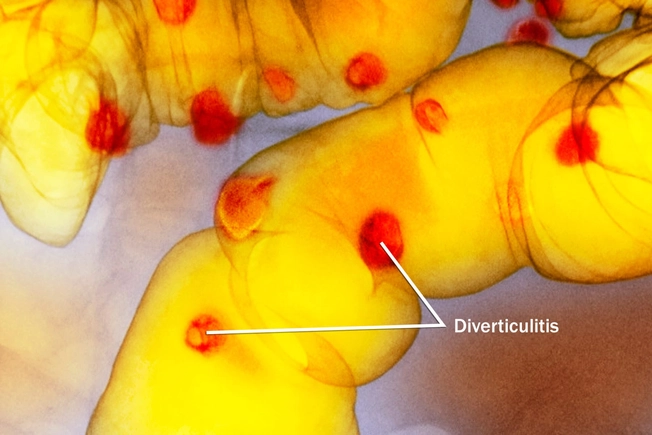
Belly
Stones are rare here and in your digestive system. Illness like diverticulitis or inflammatory bowel disease could cause them. So can changes in your stomach and intestines due to disease, genetics, or previous surgeries. Your doctor likely will get rid of them with an operation. They’ll try to figure out the root cause to keep them from coming back.
IMAGES PROVIDED BY:
1) Gwen Shockey / Science Source
2) Bplikerd / Wikipedia
3) Gunilla Elam / Science Source
4) Hans-Ulrich Osterwalder / Science Source
5) BSIP / Science Source
6) Science Source / Science Source
7) BSIP / Science Source
8) Dr P. Marazzi / Science Source
9) 3D4Medical / Science Source
10) SCIENCE PHOTO LIBRARY / Science Source
SOURCES:
Archives of International Surgery: “Enterolithiasis: An unusual cause of small intestinal obstruction.”
Cincinnati Children's Hospital Medical Center: “Venous Malformations.”
Cleveland Clinic: “When That Pain in Your Mouth Is a Salivary Stone.”
Columbia University Irving Medical Center: “Pancreatitis,” “The Pancreas and Its Functions.”
Icahn School of Medicine at Mount Sinai: “Venous Malformations.”
International Society For Sexual Medicine: “What are prostatic calculi (prostate stones)?”
Keck Medicine of USC: “What Are Tonsil Stones?”
Malaysian Family Physician: “Rhinolith: An important cause of foul-smelling nasal discharge.”
Mayo Clinic: “Bladder Stones,” “Tonsillitis,” “Pancreatitis.”
Merck Manual: “Stones in the Urinary Tract,” “Gallstones.”
National Institute of Diabetes and Digestive and Kidney Diseases: “Gallstones,” “Dictionary Definition: Bile.”
National Health Service (UK): “Salivary gland stones.”
Radiopaedia.org: “Phleboliths.”
World Journal of Gastroenterology: “Enterolithiasis.”
World Journal of Men's Health: “Clinical Significance of Prostatic Calculi: A Review.”